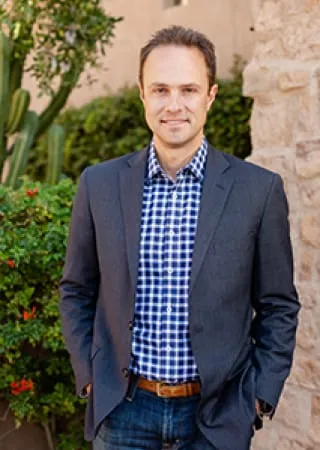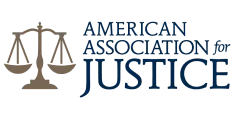Sexual abuse within religious and other trusted institutions is a devastating betrayal. It’s a complex issue, often hidden by silence, shame, and the immense power dynamic that exists between an abuser—who may be a clergy member, volunteer, or other leader—and a congregant or participant. For survivors, the pain is not just physical or emotional; it’s a deep, spiritual wound. But healing is possible, and reclaiming your voice is a powerful step in that journey.
This blog post is for you, the survivor. It’s a guide to understanding your power, exploring how to share your story, and recognizing the critical role a lawyer can play in seeking justice and creating change.
Finding Your Voice: The Path to Healing
After abuse, the voice inside you that says, “I’m not worthy,” or “No one will believe me,” isn’t your own. It was planted there by the person who hurt you. Finding your voice means challenging that narrative and discovering the strength that was always within you.
- You Are Not Alone: The first step is often to break the isolation. Reading stories from other survivors, joining a support group, or finding a community of people who have been through similar experiences can be incredibly validating. Organizations like Survivors Voices, for example, are led by survivors and offer peer support and a platform for shared experience.
- The Power of Your Story: Sharing your story, in whatever way feels safe and right for you, is an act of reclaiming power. This doesn’t mean you have to tell the world. It could be as private as journaling, or as public as advocacy. The important thing is to process your feelings and move forward at your own pace.
- Seeking Professional Support: Trauma-informed therapy is a lifeline. A skilled therapist can help you untangle the complex emotions of guilt, shame, and self-blame that are often a result of institutional abuse. They can provide tools like grounding techniques and help you work through the trauma so you can find joy and confidence again.
A Voice for Change: Helping Others
Your journey of healing can become a powerful force for prevention. By speaking out and taking action, survivors can play a substantial role in ensuring that others do not suffer the same fate.
- Raising Awareness: Your lived experience is a powerful tool for education. By sharing your story, you can help people in your community recognize the signs of abuse and understand the importance of safe practices within institutions. This breaks the culture of silence that has protected abusers for so long.
- Advocating for Policy and Systemic Change: Many institutions, including churches, have failed to protect their members due to a lack of clear policies, poor background checks, or a culture of denial. Survivors can push for change by:
- Demanding Accountability: Advocating for institutions to publicly acknowledge and apologize for past harms.
- Promoting Prevention: Working with organizations to implement better screening processes for staff and volunteers, creating clear reporting procedures, and providing education on abuse prevention.
- Championing “Lived Experience Experts”: Urging institutions to hire and listen to survivors who can help shape trauma-informed policies and training programs.
Why a Lawyer is an Essential Partner in Seeking Justice
Navigating the legal system can be a daunting process, but an experienced sexual abuse lawyer is more than just a legal representative; they are an advocate who can help you hold institutions accountable and protect your well-being.
- Holding Institutions Accountable: A civil lawsuit goes beyond punishing the individual abuser. A lawyer can investigate the institution’s role in the abuse, uncovering records, policies, and internal communications that may show a pattern of negligence or a cover-up. This not only seeks financial compensation for your pain and suffering but also shines a spotlight on systemic issues.
- Protecting Your Privacy: Many survivors worry about their identity being revealed. A lawyer can work to protect your privacy by filing motions to use a pseudonym in court filings and keeping your personal information out of the public record as much as possible.
- Easing the Burden: A lawyer acts as a shield, handling all communication with the defendant’s legal team and insurance companies. This allows you to focus on your recovery without the added stress of legal battles. They can also connect you with a network of resources, from mental health professionals to advocacy groups, to help you with both legal and non-legal needs.
- Securing Compensation for Healing: A lawsuit can seek damages to cover the immense costs of recovery, including therapy, medical bills, lost income, and the profound emotional distress you have endured. This compensation is not just a payment; it’s a way to provide you with the resources needed to rebuild your life.
Your healing journey is your own, but you do not have to walk it alone. Whether you choose to seek support, share your story, or take legal action, your voice has the power to heal yourself and create a safer world for others.
Disclaimer: This blog post is for informational purposes only and is not intended as legal advice. If you or someone you know has been a victim of sexual abuse, please reach out to one of the resources listed below.
- RAINN National Sexual Assault Hotline: 1-800-656-HOPE
- National Sexual Violence Resource Center (NSVRC): A hub for resources and information.
- National Center for Missing & Exploited Children (NCMEC): Offers support for child sexual exploitation survivors and their families.
Jason Ochs and the Ochs Law Firm have a track record of successfully representing survivors in sexual abuse litigation. The firm has pursued justice against major organizations. Ochs Law Firm highlights its commitment to a survivor-centric approach, emphasizing that while a lawsuit cannot undo the past, it can provide survivors with the financial resources needed for future care and to rebuild their lives.
In his own words, Jason Ochs describes his personal journey with a serious medical condition, which he says has made him “so incredibly empathetic” with those who have suffered a “tremendous insult to their body or mind.” This experience, he says, is the foundation of his firm’s purpose: to “restore hope” for clients. His compassionate style is underscored by client testimonials that describe his “great compassion” and ability to keep clients “grounded throughout the case.” At the same time, Ochs is noted for his aggressive approach to litigation, a member of the prestigious American Board of Trial Advocates, with an unrelenting aggressive style towards wrongdoers. This dual approach allows him to provide a supportive environment for his clients while aggressively pursuing accountability and financial damages from the defendants






